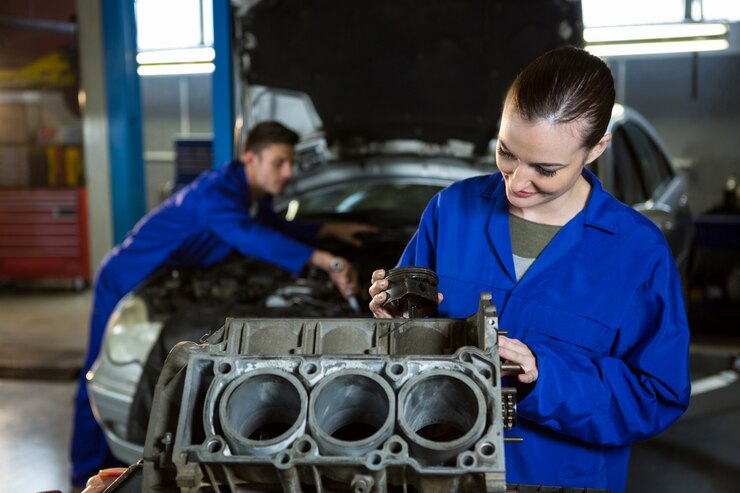In the world of automobiles, machinery, and industrial equipment, gearboxes play a crucial role in ensuring the smooth and efficient transfer of power from the engine to the wheels or other moving parts. A gearbox specialist is a highly skilled and knowledgeable professional responsible for the maintenance, repair, and optimization of gearboxes in various types of machinery.
Understanding the Gearbox: The Heart of the Transmission System
The gearbox, also known as the transmission, is a complex mechanical component that consists of gears, shafts, bearings, and other essential parts. Its primary function is to regulate the speed and torque of the engine to match the desired speed of the vehicle or equipment. Gearboxes come in different types, including manual, automatic, and CVT (continuously variable transmission), each with its own set of complexities and maintenance requirements.
The Role of a Gearbox Specialist
A gearbox specialist is a trained technician with expertise in diagnosing, repairing, and maintaining gearboxes across a wide range of applications. These professionals possess in-depth knowledge of gearbox components, functionality, and performance characteristics. Their role is essential in ensuring the optimal operation of machinery and vehicles that rely on gearboxes for power transmission.
Some of the key responsibilities of a gearbox specialist include:
- Conducting diagnostic tests to identify issues with the gearbox
- Performing routine maintenance to prevent premature wear and tear
- Repairing or replacing damaged gearbox components
- Optimizing gearbox performance for improved efficiency and reliability
- Providing expert advice on gearbox selection and configuration for specific applications
Skills and Qualifications of a Gearbox Specialist
Becoming a gearbox specialist requires a combination of technical knowledge, hands-on experience, and specialized training. Some of the essential skills and qualifications for this role include:
- Strong understanding of mechanical principles and gearbox operation
- Proficiency in reading technical drawings and schematics
- Experience with diagnostic tools and equipment for gearbox analysis
- Knowledge of safety protocols and best practices in gearbox maintenance
- Certification or training in gearbox repair and maintenance from a reputable institution
Challenges Faced by Gearbox Specialists
Working as a gearbox specialist can present a variety of challenges, including:
- Complex gearbox systems that require precise diagnosis and repair techniques
- Limited availability of specialized parts for older or custom gearboxes
- High pressure to minimize downtime and maintain operational efficiency
- Continuous technological advancements in gearbox design that require ongoing training and education
Despite these challenges, gearbox specialists play a vital role in keeping machinery and vehicles operating smoothly and efficiently.
The Future of Gearbox Specialists
As technology continues to evolve, the role of gearbox specialists is expected to become even more critical. With the rise of electric vehicles, autonomous machinery, and advanced industrial equipment, the demand for skilled professionals who can troubleshoot, repair, and optimize gearboxes will only increase.
In conclusion, gearbox specialists are indispensable professionals in the world of mechanical engineering and automotive technology. Their expertise ensures the smooth operation of gearboxes in a wide range of applications, from cars and trucks to industrial machinery and equipment. By staying abreast of the latest developments in gearbox technology and continuously honing their skills, gearbox specialists will continue to play a vital role in keeping the wheels of industry turning.
References:
- Society of Automotive Engineers (SAE)
- American Gear Manufacturers Association (AGMA)
- National Institute for Automotive Service Excellence (ASE)


